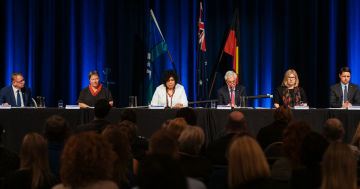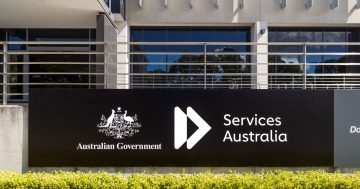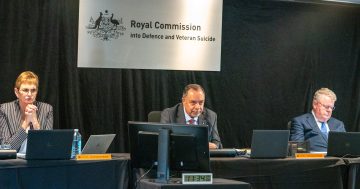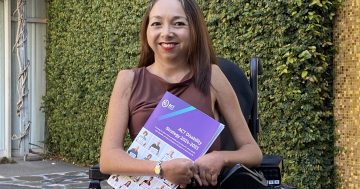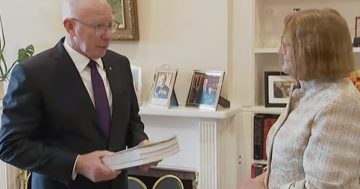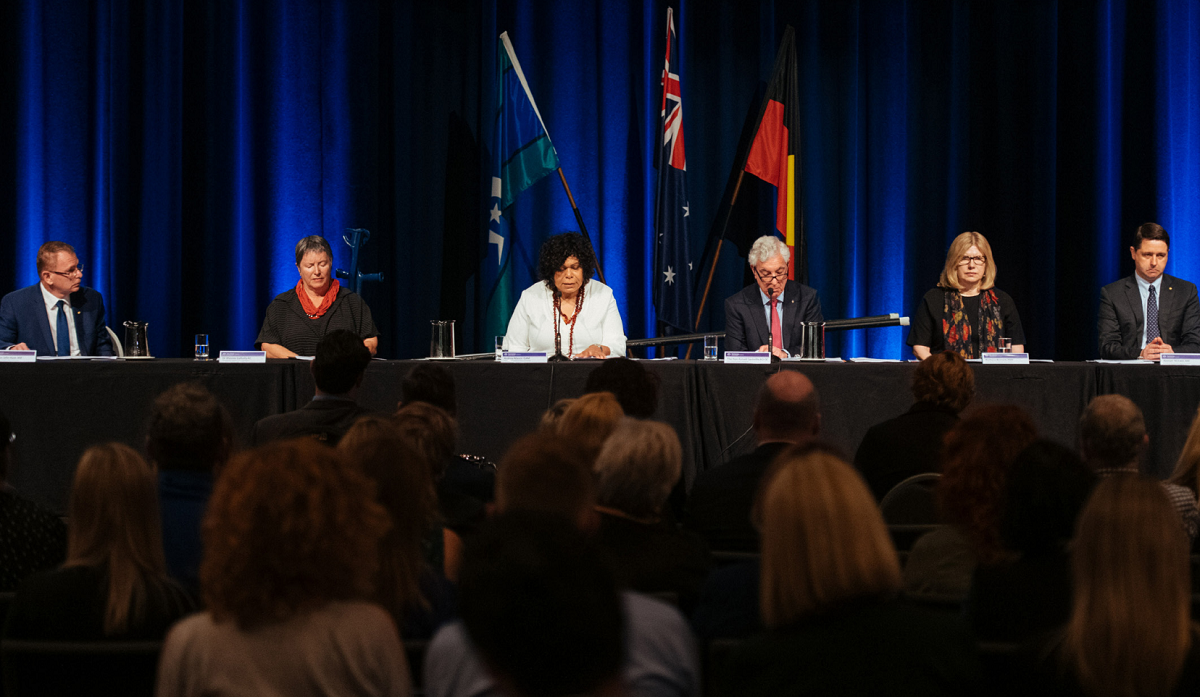
Disability Royal Commissioners John Ryan AM, Dr Rhonda Galbally AC, Andrea Mason OAM, Chair Ronald Sackville AO KC, Barbara Bennett PSM and Dr Alastair McEwin AM. Photo: Screenshot.
After four and a half years of submissions and hearings, the Royal Commission into Violence, Abuse, Neglect and Exploitation of People with Disability has released its final report, calling for an Australian Disability Rights Act to be established.
The recommendation is just one of 222 in the 12-volume report. Others include:
- The establishment of a new Australian Government portfolio specifically responsible for disability with a Minister for Disability Inclusion and a new Department of Disability Equality and Inclusion
- A new National Disability Commission as an independent statutory authority
- More accessible information and communications, and increasing the number, skills and accessibility of interpreters
- A new framework and national principles for supported decision-making
- Major reforms to mainstream systems to dismantle barriers that prevent people with disability from accessing inclusive education, open employment, and accessible, appropriate and safe housing
- Addressing the over-representation of people with disability in criminal justice settings
- Increasing culturally-safe disability services and supports for First Nations people with disability, and
- Nationally consistent adult safeguarding laws, community visitor schemes, and an independent one-stop shop in each state and territory for reporting complaints, referrals and support.
It says that while most of these recommendations are directed towards the Commonwealth, some are relevant to state and territory governments and non-government agencies such as service providers and professional associations.
The Royal Commission was established in April 2019 to investigate reports and community concerns about violence against, and the neglect, abuse and exploitation of, people with disability.
Headed up by former Federal and Supreme Court Judge Ronald Sackville AO, the commissioners included Barbara Bennett PSM, Dr Rhonda Galbally AC, Andrea Mason OAM, Dr Alistair McEwin AM, John Ryan AM, and Roslyn Atkinson AO.
The Royal Commission gathered information through research, public hearings, and personal testimony of people who have been affected by or witnessed violence or abuse in all settings, including schools, workplaces, jails and detention centres, disability and mental health facilities, group homes or boarding houses, family homes, hospitals and day programs.
Apart from its formal hearings, community forums were held in Hobart, Gawler, Adelaide, Townsville, Ipswich and Logan, while commissioners also visited Aboriginal communities and organisations in Palm Island, Cherbourg, Alice Springs and Papunya.
Progress reports were published roughly every six or seven months from December 2019 to March 2023, an interim report was delivered in October 2000, and the final report was delivered to the Governor General on 28 September 2023.
“The Royal Commission is the product of tireless and persistent efforts by disability advocates, who had long recognised people with disability are routinely subjected to violence, abuse, neglect and exploitation,” Mr Sackville said in his chair’s foreword.
“Completion of our final report therefore marks the culmination of many years of advocacy by people with disability and their representative organisations.
“As many people with disability told us – at public hearings, in submissions, private sessions and responses to issues papers, and at community engagements – there is not much point to a lengthy Royal Commission if its recommendations do not lead to transformational change,” Mr Sackville noted.
Acting ACT Chief Minister Yvette Berry and Minister for Disability Emma Davidson welcomed the report, saying it had been a long but important process for people with a disability and for every Canberran.
“I am reconfirming our commitment to working with the disability community at all levels of government, in all sectors, to develop an ACT Government response to this Report,” Ms Berry said in a statement.
“The ACT Government takes this report seriously and will carefully examine the recommendations in the context of the ACT. Our response will only be successful if we work collectively to achieve a more inclusive society.”
Ms Davidson added, “I acknowledge the tremendous efforts by the community of people with disability who advocated for the Royal Commission, and I thank everyone who shared their experiences bravely, with integrity and dignity, over the past four and a half years”.
“It is important we respond comprehensively to the report so we do not miss any opportunity to achieve real change.”
The Royal Commission’s Final Report can be found here.












